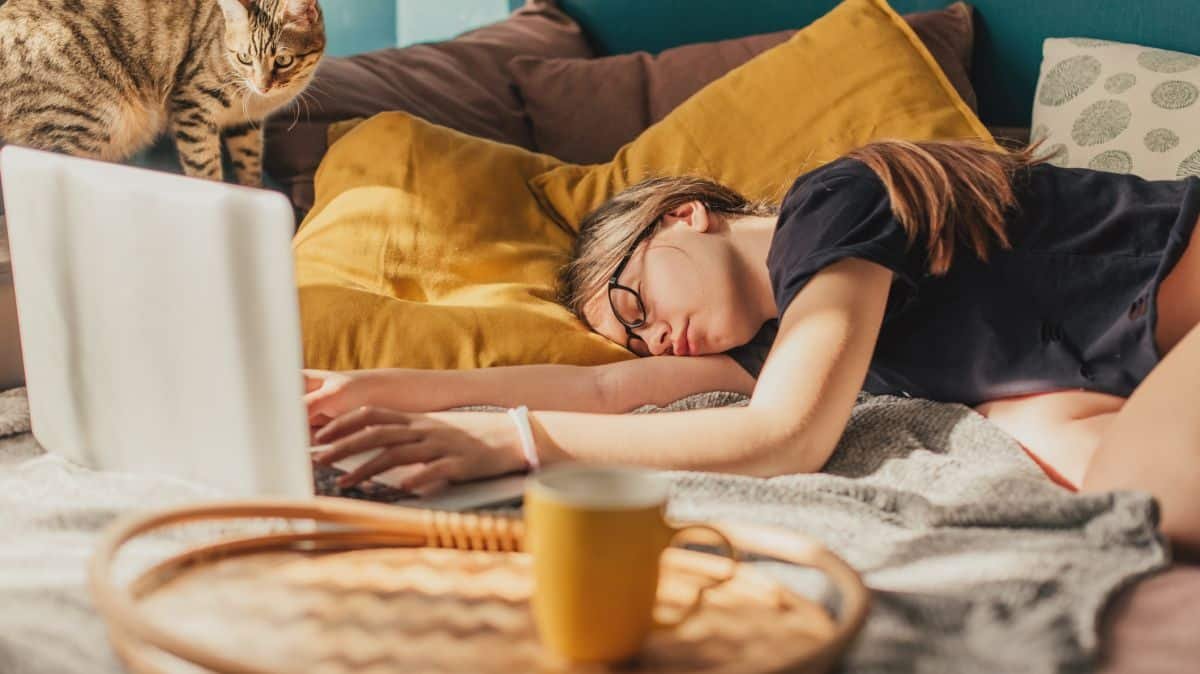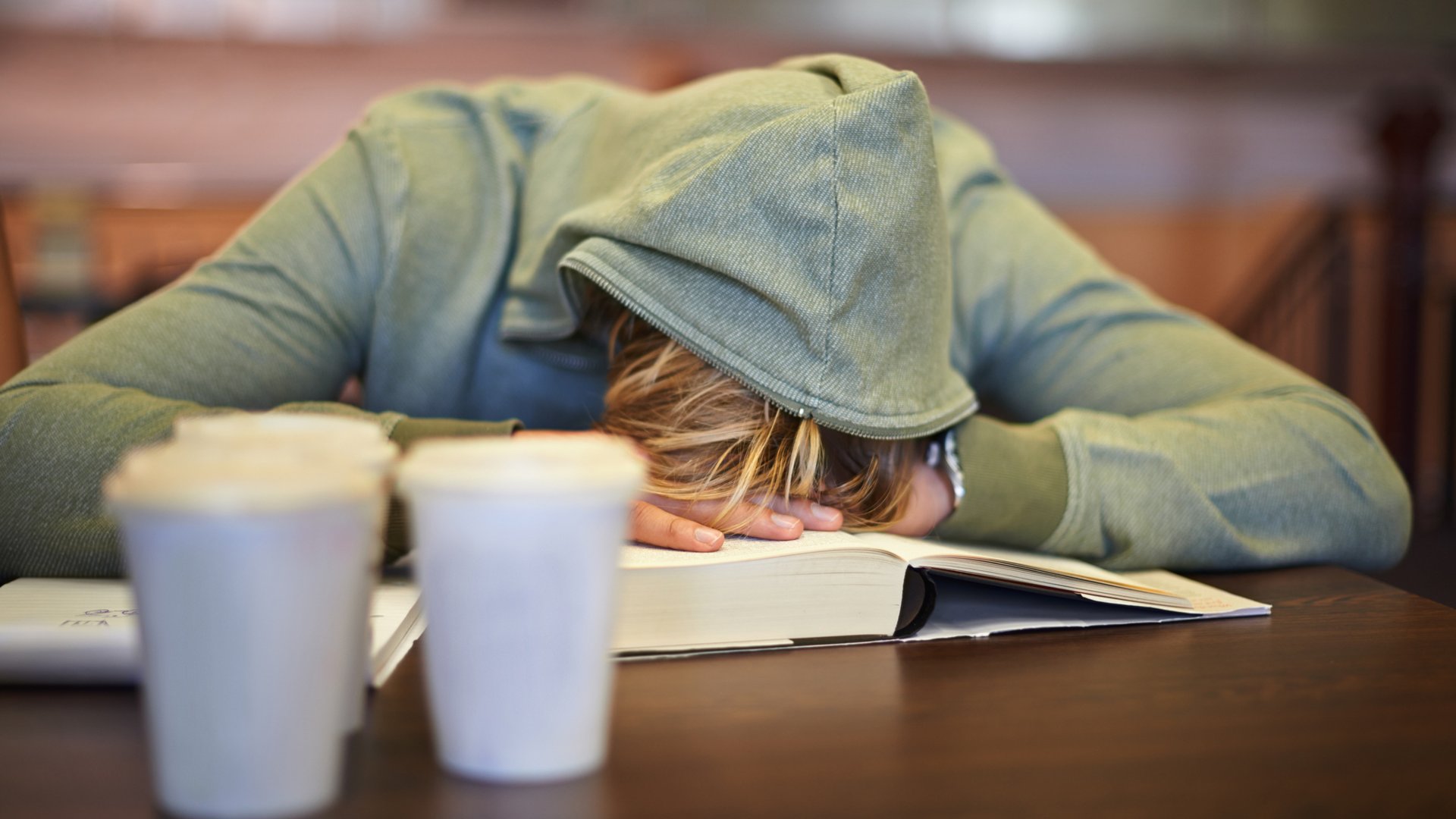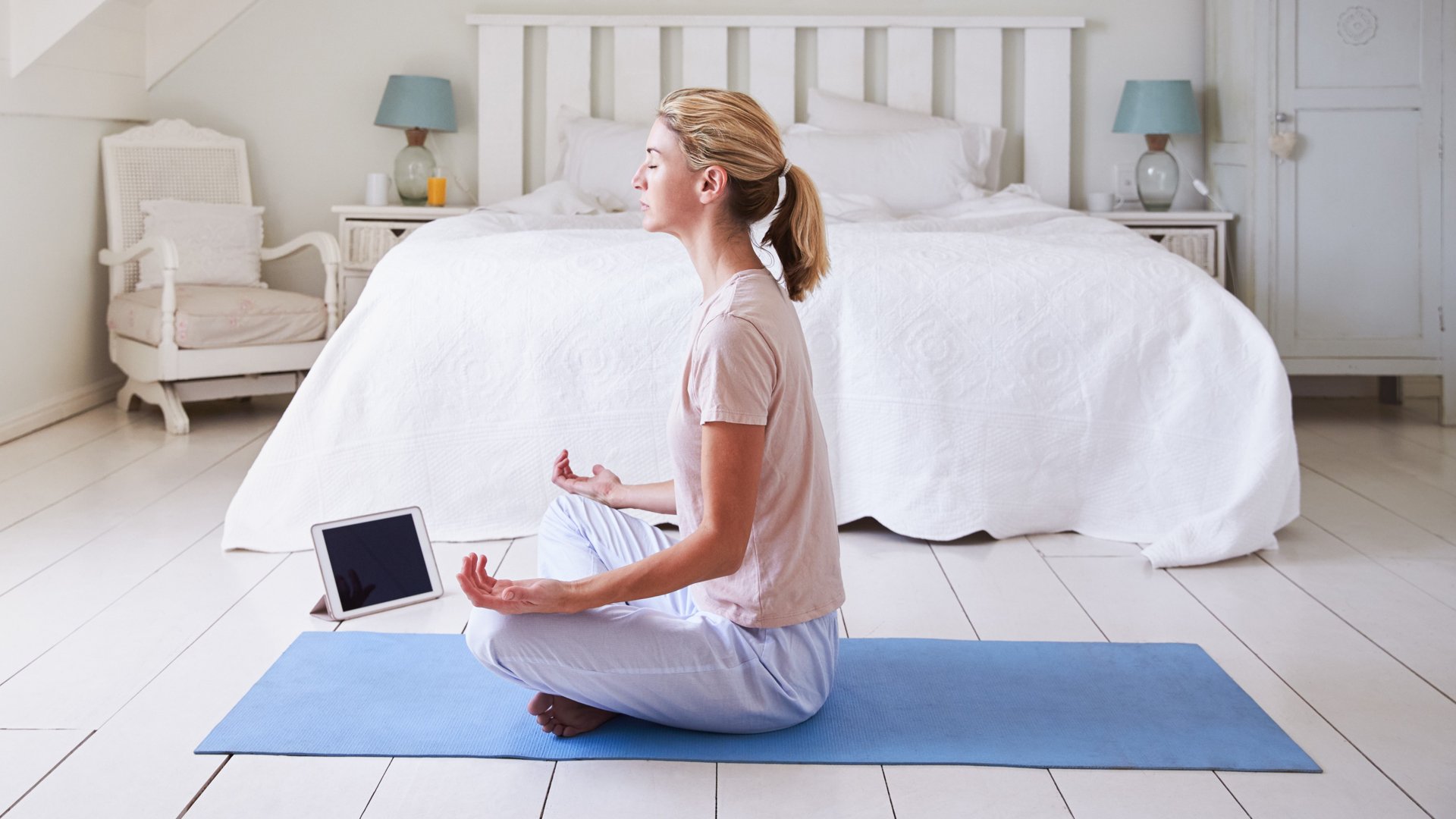
Back to school is an exciting time. So exciting, in fact, that you might forget to prioritize sleep. But if you want to succeed in college and have the energy for a busy social life, good-quality sleep is your secret weapon.
To help you feel really good, we've put together this handy guide on how to sleep better in college, along with six key products to help you fall asleep faster and longer.
After all, at home you may have the best mattress for your body and sleeping position, but you can't exactly roll it up and take it with you. So here's what to do and pack instead...
How much sleep does a student need?
According to CDC guidelines, most healthy college students need seven to nine hours of sleep a night. Getting that amount of good-quality sleep is essential to help you process what you learn every day in college and to help your brain repair your body overnight and ward off illness.
The result? You'll feel more rested and energized the next day, so you'll be more focused in class and engaged when out with your friends.
If you regularly experience any of the following symptoms, you may not be getting enough sleep at night:
- You wake up frequently at night.
- You wake up tired most mornings
- You need caffeine to increase your energy levels.
- you fall asleep in class

Of course, there are other reasons for feeling tired, so if you regularly feel tired and think you're sleeping well otherwise, talk to your doctor or healthcare professional for advice.
Why sleep is important for college students
According to research, daytime sleepiness, sleep deprivation, and chaotic sleep schedules are common among college students. A 2014 study found that 50% of college students reported daytime sleepiness, while 70% reported not getting enough sleep each night.
How does this relate to your potential GPA (grade point average)? The study revealed that:
- Students who sleep about nine hours a night have a higher GPA of 3.24
- Students who slept six hours or less each night had a lower GPA of 2.74
The benefits of sleep also go beyond grades, as research tells us that good-quality sleep benefits our mental health, confidence, decision-making, and ability to form and maintain friendships.
In short, if you want to improve your grades and feel more secure in your new social life, sleeping well is essential.
How to Sleep Better in High School: Tips and Techniques
We know there are more exciting things to do in college, but learning how to sleep better will set you up for a brilliant year and beyond. The easiest way to prioritize good sleep is to create a simple yet relaxing bedtime routine and wake up at the same time every day (regularity is key to a better night's sleep).

These are the basics, but we also recommend the following:
- Do not consume caffeine after noon; depending on your tolerance, it can stay in your system for up to eight hours and interfere with your sleep.
- Don't eat large meals within three hours of bedtime: your body will focus on digestion, not sleep.
- Do your cardio in the morning – light exercises only close to bedtime.
- Learn how to relax your brain and body before sleeping - a good sleep app with meditation sessions will help you here.
- Turn off the lights in your bedroom about an hour before bed to stimulate the production of melatonin (the sleep hormone).
- Keep your bedroom cool, dark and quiet for sleeping.
- Get rid of technology before bed: blue light pollution is the enemy of melatonin. At a minimum, switch to night mode and consider wearing blue light blocking glasses (these have orange lenses).
- Adopt a good sleep technique to help you fall asleep faster: We are big fans of the military sleep method.
- Don't put pressure on yourself: the more you insist on getting a good night's sleep, the harder it will be to get there.
6 products to sleep better at night
1. Sleep tracking
How do you feel when you wake up every morning? If you constantly feel tired and cranky, you probably need more sleep. If you still wake up wanting to go and don't need to drink a lot of caffeine first, then you're getting enough sleep.
A sleep tracker can help you get a rough idea of how much you sleep each night, what might be interrupting it, and how you can sleep better. Don't take the stats as gospel, but they are helpful to better understand your sleep and how to improve it if needed.
2. Earplugs for sleeping or a speaker under the pillow
Bedrooms can be noisy, and if you're a light sleeper anyway, your sleep will be ambushed by noisy neighbors. Using earplugs is a quick way to block out outside noises that might wake you up. When choosing the best earplugs for sleeping, think about the types of noise that most disturb your sleep. If there are other students or traffic noise outside, look for noise-canceling earplugs to cut out the noise.
On the other hand, if you have trouble falling asleep when it's too quiet, consider using sleep headphones with built-in white noise and soothing sounds for sleep, or an under-the-pillow speaker for gaming. like wearing something in your ears at night.
3. Comfortable (and protective) mattress topper
You can't send your entire bed across campus with you, but you can put a thick, clean barrier between your body and the dorm mattress you inherited. We recommend you invest in the best mattress topper for your budget and choose viscoelastic if you want to add softness or enveloping comfort to a bed that is too firm.
Also, while keeping a clean bed is vital for hygiene, it can help you sleep better if you suffer from allergies. This is because regular cleaning keeps bacteria and dust mites (a major allergen) away and reduces dust levels. A good mattress protector protects against dirt, spills and stains and can be slipped over the mattress topper. Opt for a mattress cover for full coverage.
4. Support pillow
Choosing the best pillow for your sleeping position and body type is a smart move for your overall wellness in college. Find the right one and your head and neck will be well supported throughout the night, helping you sleep better for longer. You also won't wake up with a stiff neck and you won't have to deal with pain when studying and socializing.
Side sleepers often need higher, firmer pillows to fill the space between their heads and shoulders, while back and stomach sleepers do better with shallower pillows that don't tilt the head. neck forward or out of alignment.
5. Wake up light
You may not need it right away, so put it on your "file until later" list. But when night falls and the morning sun is a thing of summers past, a wake up light will help you get up and shine brighter every morning for college.
While not up to the standards of proper light therapy lamps, these bedside biological clocks may also help reduce some of the symptoms of seasonal affective disorder (opens in a new tab) (SAD). They do this by slowly bathing your room each morning in a cheery glow that mimics a sunrise. At night, use the sunset mode to drift into a deep sleep.
6. Eye mask
Noise can disrupt sleep, but so can light pollution. This can be from random light sources in your bedroom (think plug sockets and light switches) or lighting from floor lamps filtering through thin curtains.
If you're comfortable wearing an eye mask, we recommend trying one on to see if it helps. Start with a cheaper one to start with, in case you don't like the feeling of wearing something on your head while you sleep. Your other option is blackout blinds and shades, but they are more expensive.
Read more: